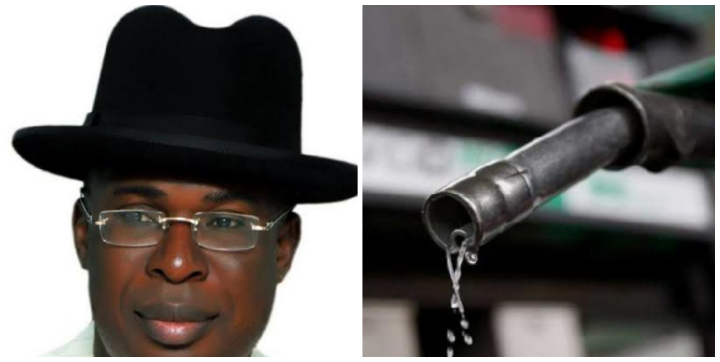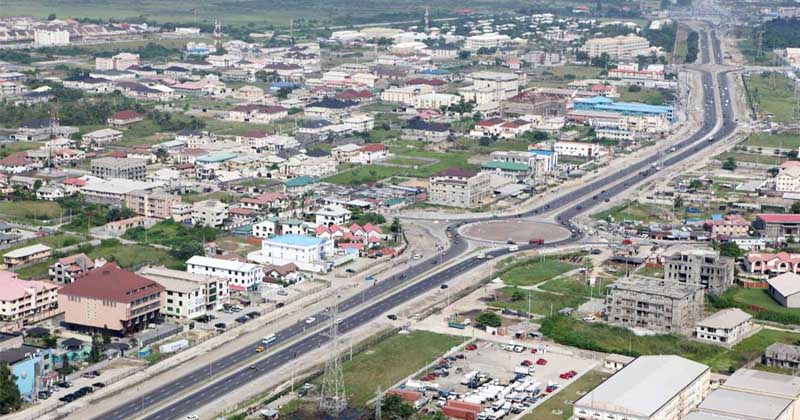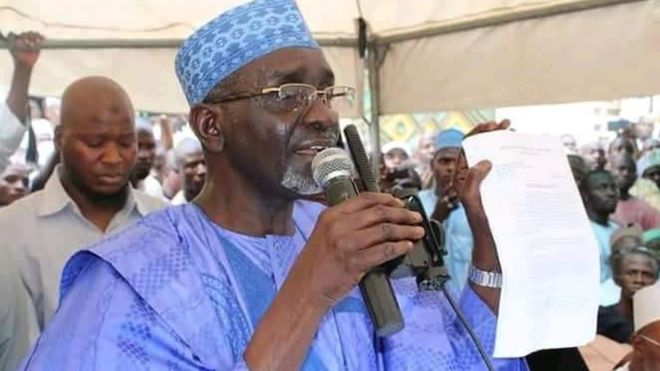Nigerians are still trying to come to terms with the fact that the Federal Government has linked the recent increase in the cost of petroleum products in the country to the announcement of the development of a coronavirus (COVID-19) vaccine by Pfizer.
Timipre Sylva, Nigeria’s Minister of State for Petroleum Resources while fielding questions from State House correspondents after his routine meeting with President Muhammadu Buhari on Monday said the announcement impacted on the price of crude oil, noting that since government had decided to allow the petrol price to float, a rise in the crude oil price would naturally be reflected in the price of petrol.
He said, “Now what happened recently was because of the announcement of a vaccine for COVID-19 by Pfizer. With that crude oil prices went up a little bit. If you have been following crude oil prices you would have seen that crude oil prices went up a little bit as a result of this announcement.”
“If the price of crude oil goes up then it means the price of the feedstock has gone higher, it will also affect the price of the refined product and that is why you see that product prices are usually not static, it depends on the price of crude oil, which goes up and down. That is why we say deregulate, so that as the price goes up or down, you will begin to go up and down as well at the pump.
“Before now we fixed it, which was not optimal for us as a country. So, we said our earnings are not fixed because they are dependent on crude oil price. If we fix it at this end, then it becomes unsustainable at some point. So, let us keep it floating so that if crude oil prices go up, you’ll see a reflection of that and if crude oil prices go lower, you’ll see a reflection of that at the pump.”
Sylva, however, assured Nigerians that would get used to the deregulation of the pump price of petrol just as they had become in the case of kerosene and diesel. He said diesel and kerosene were even more important to the ordinary citizens than petrol, which he said was mostly used by the elite. The minister reiterated that Nigeria was no longer in the position to subsidise the cost of petrol, in view of falling crude oil production and lack of optimal sale.
Again he said, “Let us first agree that these are not the best of times, not only for Nigeria but for the global community. What we have said over and over again as a government is that government is no longer in the business of fixing pump price, that is the meaning of deregulation and stepping back on subsidy.
“Yes, we are very aware that this will result to some increase but why do we have to do this, because it is clearly impossible for government to continue to subsidise. The money is not there now.
“Just take the example of our production levels; our crude oil production level was over two million barrels a day, today to comply with OPEC cut and quota, we have reduced production to 1.4 million barrels. “Having reduced production to 1.4 million barrels, crude oil is also not selling at an optimal rate. Where do you get the money to continue to subsidise?
“Our FIRS collection has also reduced because less oil is being produced, there is less activity in the oil industry which is driving the economy,” he said.





